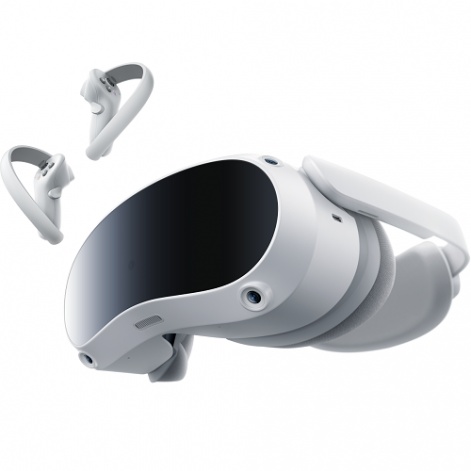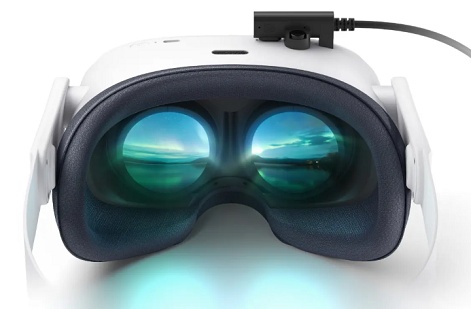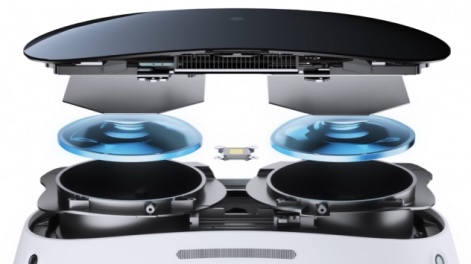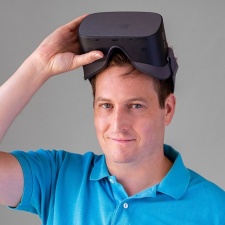The recent launch of the Pico 4 headset marks the Chinese company's first full consumer release in Europe. The previous Neo3 Link impressed upon its release this May - see our in-depth review- even though Pico considered that a Beta launch.
With the new headset exceeding anticipated demand at launch, we spoke with Pico's head of consumer products in the EMEA region, Leland Hedges, about its development, hardware choices and what kind of games the company is currently pursuing for the platform.
Q: Congratulations on the sold-out success of Pico 4! It's an enviable position to be in; how long until the supply chain can meet user demand?
A: It’s fair to say the launch was a huge success and we have seen a vast global demand for the product, leading to some delay in fulfilling pre-order deliveries in Europe. The team has been working tirelessly to ensure orders are fulfilled as quickly as possible, so even more consumers can join our world.
We now have the product back in stock, with another delivery before Black Friday, where we'll be offering a special games bundle...
Q: The Pico Neo3 Link was marketed as a beta product - and we reviewed it favourably - with future discounts on next gen hardware. How have existing users taken to the new Pico 4? (What percentage adoption rate?)
A: We have seen a large number of existing users purchase the Pico 4, in addition to lots of new customers too. New and existing customers love the Pico 4 and we really appreciate everyone’s support.
Link customers can redeem their special offer until December 31st, so we won't have the final adoption rate numbers until 2023, but so far at least half of Link users have ordered the Pico 4. The majority have chosen the higher capacity version given the value created by the discount.

Pancake optics are a game changer for consumers and developers alike.Leland Hedges
Q: Pico has successfully operated in Asian consumer markets - as well as the wider enterprise sector for some time - why is now the right time to expand internationally?
A: We have been developing the Pico 4 for a long time. We are very proud of it, and believe it's a really strong proposition for consumers in all markets. Judging by the feedback so far, we were right.
Q: Other than HTC's niche Vive Flow, Pico 4 is the first consumer headset with pancake lenses. What does that mean for VR developers?
A: We feel that pancake optics are a game changer for consumers and developers alike. Not only do pancake optics offer an increased field of view and reduce lens flares, they are also really thin and light. They have helped us create this amazingly lightweight form factor that allows for extended gameplay in absolute comfort.
So the benefits for consumers are clear. For developers, this means that the audience of users is getting bigger and bigger each day. The thinness and lightness means those users will be enjoying VR worlds in absolute comfort. Also, with the panoramic 105-degree field of view, developers can also include more details into the periphery of a scene and have confidence that those details will be noticed.
Q: The controllers have taken a massive step forward. What can you tell us about their development?
A: For me, it’s the small details that make the Pico 4 so great. The controllers are most definitely a part of that.
When developing the Pico 4, we switched to a diagonal hand tracking ring design so you can fit your hands together while wearing the controllers. This makes for a more realistic and immersive experience, while also more accurately tracking hand movements. We also added a little tray to the battery holders to reduce the risk of your batteries falling out during gameplay. Both these features have been really well received and it just goes to show how those little details can make a big difference.

Simply put, we want to be a market leader in this space.Leland Hedges
Q: PICO 4 has done away with one of our favourite things about the Neo3 Link, namely the Displayport interface via cable for PCVR. Why?
A: The Pico 4 is intended to be an all-in-one standalone VR headset. PCVR is of course an important part of that, but we also wanted to make sure the headset was as thin and light as possible. This meant streamlining the headset, partly by removing some cable connections. We were sure to find great solutions for users though and are confident in our wireless dongle solution, which is launching next year.
For hardcore PCVR gamers, the Neo3 Link is still available and we believe that it still holds up as a really strong product.
Q: Speaking of hardware sockets, why no dedicated headphone out? Bluetooth is known to be laggy for games!
A: Every design decision was made with the overall experience in mind, and we feel that the thin-and-lightness is worth it. The speakers are also excellent so you don’t necessarily need to connect headphones. But if you really want to use wired headphones then you still can, by using a USB-C adapter.
Q: Meta's Quest 2 has firmly established itself as the market leader almost by default. Is it too late to catch up? Or is that comparison even a metric for success?
A: We prefer to focus on ourselves. We’re completely focused on delivering the best VR experience for individuals and businesses as they connect to new worlds. We want to disrupt the current status quo and provide a bold new choice for consumers.
Simply put, we want to be a market leader in this space.

I'd like to see one XR device for every person on the planet, because these devices fundamentally improve our experience and connection to the digital worldLeland Hedges
Q: How does developing software for Pico 4 differ from other standalone headsets? How easy is it for developers to port games to the platform?
A: Our developer tools are mature, given our heritage in enterprise products. As a rule, it takes 40 hours to port a game onto our platform, but I have heard of developers who can do it in a day with the right motivation.
Q: What are you looking for in software for the Pico Store? Are there any underrepresented genres/sectors that developers should prioritise?
A: In terms of games, we are hoping to see more narrative experiences as well as cooperative multiplayer team games. For non-gaming categories, we see the most opportunities in fitness and wellness. We also are obviously excited about social VR fuelled by the creator world we know from TikTok.
Q: What does the future hold for consumer VR?
A: We are building an inclusive VR ecosystem for individuals and businesses, while supporting developers and partners as they create engaging content. In doing so, we hope to remove as many barriers to adoption as possible and make VR even more accessible for consumers.
In the future, I'd like to see one XR device for every person on the planet, because these devices fundamentally improve our experience and connection to the digital world.
Leland Hedges is the head of Pico consumer products in EMEA where he oversees all consumer commercial activity in the region, including the launch of the Pico 4 and the Neo3 Link. Prior to standing up the consumer business, Leland led all B2B activities for Pico Europe.
Hedges has nearly a decade of experience in VR. Before joining Pico in 2017, Leland held roles at PlayStation, where he defined the market for Project Morpheus (that would become PSVR), and at a live events VR start-up. Leland earned his MBA at UC Berkeley's Haas School of Business and holds a BA from Colgate University.













